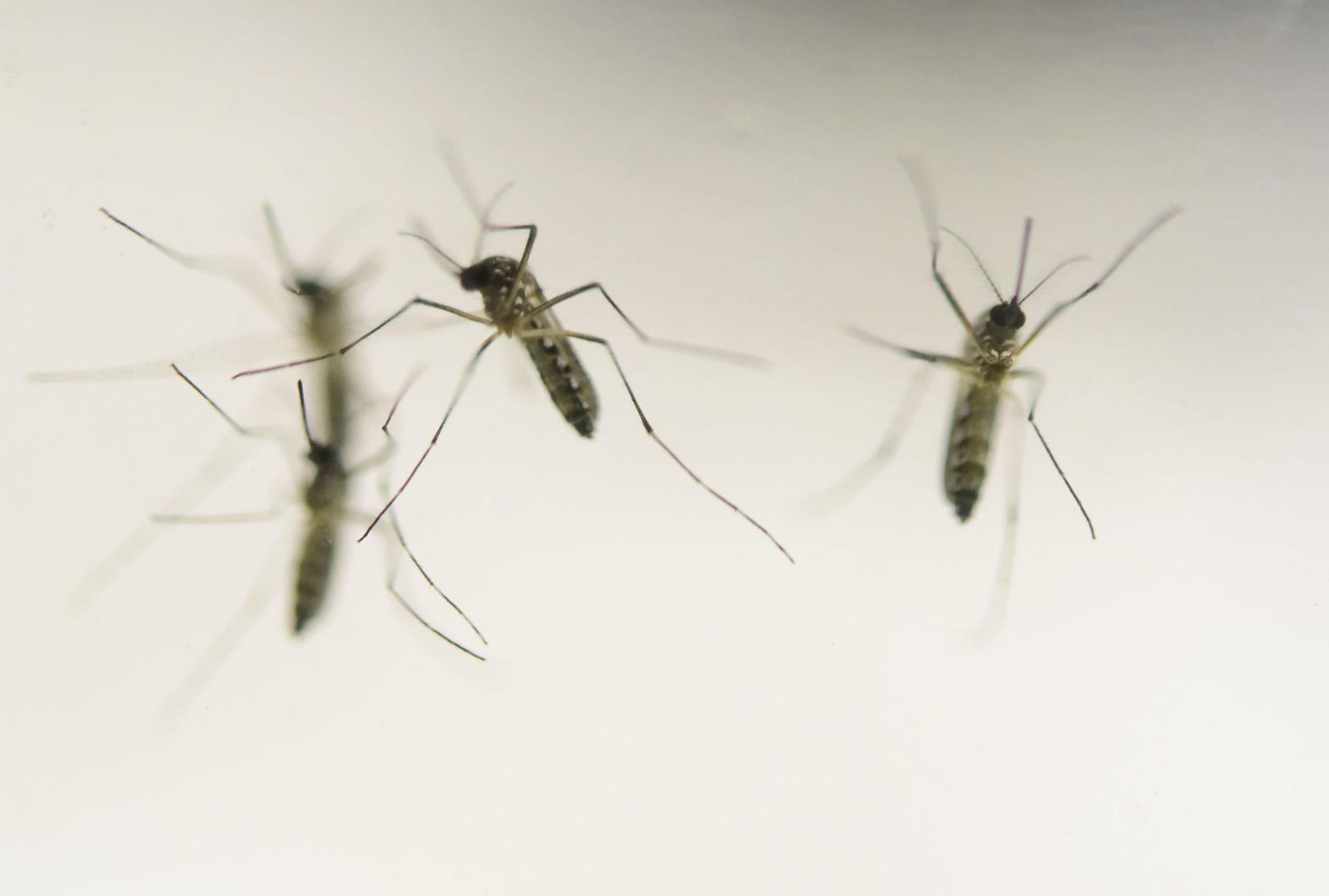Aedes aeqypti has developed resistance to insecticides
Rainy season is here and that means more mosquitoes. And while repellents do the job when needed, the best way to fight the spread of the Aedes aeqypti, the main carrier of dengue fever, Zika fever and chikungunya virus, is to ensure there are no containers in your home that could serve as breeding grounds.
Contrary to what many people may believe, insecticides are no longer effective because the mosquito has developed resistance due to overuse of the chemicals, according to Grayson Brown, a public health entomologist and executive director of the Puerto Rico Vector Control Unit.
“The Aedes aeqypti is the single most dangerous insect in the world and kills millions of people every year,” Brown said before the Rotary Club of San Juan. “Unfortunately, it is the most common mosquito in Puerto Rico and the Caribbean.” He explained that the mosquito is not native to the Caribbean, but was introduced to the Americas in the 1600s as part of the slave trade.
Since the Aedes aeqypti has developed resistance to insecticides, the best course of action is to prevent them from breeding in the first place. Make sure there are no containers with standing water—whether in trash, planters, plastic bags, bottles and the like—where mosquitoes can lay their eggs.
This is very important, as 40 percent of homes on the island have the deadly bloodsucker, Brown said, noting that the mosquito is often found in urban areas. Surprisingly, the eggs can be dormant for as long as five years and if the breeding area gets wet, the larvae will hatch.
Scientists are also developing new technology to fight Aedes aeqypti. “Larvicide spray works to kill just the larvae. Use it once a week and it is pretty effective,” Brown said. Places like Broward County in Florida are already following this strategy. “Another is to release sterilized males in the environment and after mating with females, the eggs don’t hatch,” he added, noting that work is also being done to develop new chemicals for insecticides.
Meanwhile, the U.S. Food and Drug Administration (FDA) has recently approved Dengvaxia, the first vaccine to fight dengue, for at-risk areas like Puerto Rico and the U.S. Virgin Islands. The FDA approval has strict restrictions: only people ages 9 to 16, who have had a previous infection of dengue and live in endemic areas can receive Dengvaxia. Brown said the vaccine should be available in Puerto Rico next year.
Late last year, the vaccine also received approval from the European Commission, for areas where dengue is endemic, such as Guadeloupe and Martinique, which are overseas and insular regions of France.
Since Puerto Rico has a tropical climate, the Aedes aeqypti is around all year long, with higher prevalence in the rainy season. “We can have an outbreak of vector-borne diseases at any time. Besides the issue of solid waste management on the island, travelers, like those on cruise ships, is another concern,” Brown said.
The Vector Control Unit is a private nonprofit organization, founded in 2016 by the Puerto Rico Science, Technology and Research Trust. With a budget of $14 million a year and a staff of about 60 team members, the Vector Control Unit conducts research and helps the P.R. Health Department fight mosquito-borne diseases.
Brown is the past president of the Entomological Society of America. With more than 40 years of experience, his work and research have been conducted in Africa, the Pacific Islands, Southeast Asia and South America.

Dr. Grayson Brown
Director Ejecutivo
Sobre la Unidad de Control de Vectores de P.R.:
La Unidad de Control de Vectores de Puerto Rico es un programa del Fideicomiso para Ciencia, Tecnología e Investigación de Puerto Rico en colaboración con los Centros para el Control y la Prevención de Enfermedades y el Departamento de Salud de Puerto Rico. La Unidad fue establecida para reforzar las capacidades de la Isla para controlar el mosquito Aedes aegypti, vector del dengue, Zika y chikungunya. Su programa de Manejo Integrado de Vectores cuenta con tres iniciativas principales para lograr aspirar a un Puerto Rico libre de enfermedades trasmitidas por mosquitos. Los tres pilares son monitoreo y vigilancia, movilización comunitaria y control de vectores. Mediante la educación y el empoderamiento a los ciudadanos se logrará reducir dramática y sosteniblemente la población de mosquitos en todo Puerto Rico. Para más información: www.prvectorcontrol.org.
Sobre el Fideicomiso para Ciencia, Tecnología e Investigación de Puerto Rico:
El Fideicomiso para Ciencia, Tecnología e Investigación, según descrito en la Ley Pública 214, es una organización sin fines de lucro creada en el 2004 para impulsar la participación y creación de empleos de la Isla en la economía global del conocimiento al promover la inversión y el financiamiento de la investigación y el desarrollo de la ciencia y la tecnología. Al invertir en la investigación y la comercialización de la tecnología, el Fideicomiso sirve de catalizador para la creación de empleos y la retención de los residentes de la Isla altamente cualificados y a menudo bilingües. Es también responsable de la política pública de Puerto Rico para la ciencia, la tecnología, la investigación y el desarrollo. Para más información : www.prsciencetrust.org.
